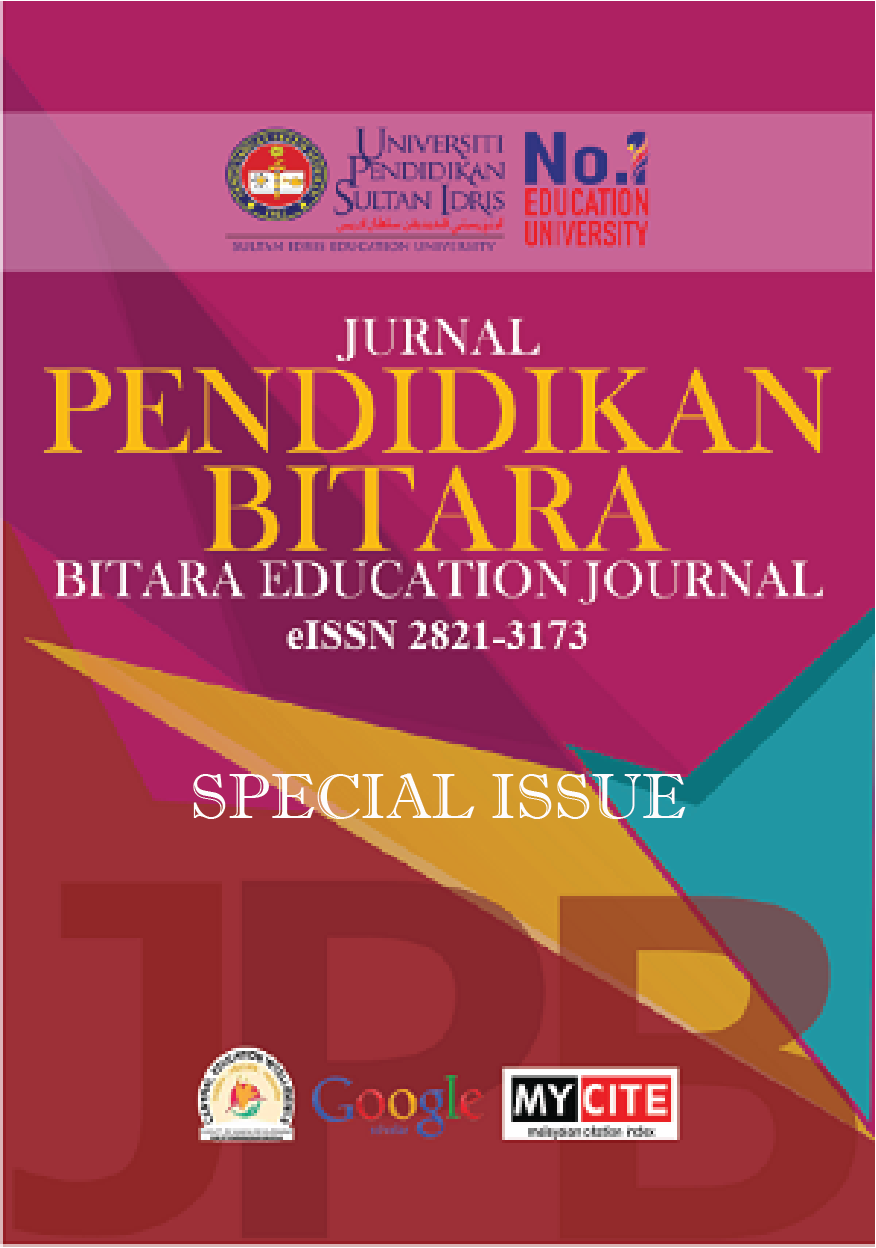Effects of using simulation of micro controller boards student programming achievement two
Kesan penggunaan simulasi papan pengawal mikro terhadap pencapaian pengaturcaraan murid tahap dua
DOI:
https://doi.org/10.37134/bitara.vol16.sp.9.2023Keywords:
Simulation, Microcontroller board, Programming, AchievementAbstract
Formative assessment, learning for life, student-centered learning, new skills in life and thinking are among the contents of 21st Century Learning (PAK-21) that are important for future generations to face the challenges of the country's 4IR Policy. There is a practical gap in the widespread use of microcontroller board simulation in the early stages of schooling in Malaysia. Programming and computerbased learning using simulation methods can be an approach for students in primary school. Pupils need problem-solving skill training from an early stage to generate knowledge. The research design conducted is an experimental quantitative study that pays attention to pre-test data and post-test data from the treatment group and the control group. Design and Technology (RBT) students need to be given space or opportunities for different learning according to their efforts to make it easier for themselves to master learning disciplines. This study is relevant considering that there are not many literature studies that have been found focusing on procedures in effective microcontroller simulations in Malaysia.
Downloads
References
Alexandre, F., Becker, J., Comte, M. H., Lagarrigue, A., Liblau, R., Romero, M., & Viéville, T. (2021). Why, What and How to Help Each Citizen to Understand Artificial Intelligence? KI - Kunstliche Intelligenz, 35(2), 191–199. https://doi.org/10.1007/s13218-021-00725-7
Batiha, Q., Sahari, N., Aini, N., & Mohd, N. (2022). Adoption of Visual Programming Environments in Programming Learning. International Journal on Advanced Science, Engineering and Information Technology, 12(5), 1921. https://doi.org/10.18517/ijaseit.12.5.15500
Bermúdez, A., Casado, R., Fernández, G., Guijarro, M., & Olivas, P. (2019). Drone challenge: A platform for promoting programming and robotics skills in K-12 education. International Journal of Advanced Robotic Systems, 16(1). https://doi.org/10.1177/1729881418820425
Chen, G., He, Y., & Yang, T. (2020). An ISMP Approach for Promoting Design Innovation
Capability and Its Interaction with Personal Characters. IEEE Access, 8, 161304– 161316. https://doi.org/10.1109/ACCESS.2020.3019290
Effendi, M., Mohd-Matore, E., & Osman, S. S. K. (2022). Exploratory and Confirmatory Factor Analysis for Disposition Levels of Computational Thinking Instrument Among Secondary School Students. European Journal of Educational Research, 11(2), 639– 652. https://doi.org/10.12973/eu-jer.11.2.639
Jack, L. P., Khamis, N., Salimun, C., Nizam, D. M., Haslinda, Z., & Baharum, A. (2019). Learn programming framework for malaysian preschoolers. International Journal of Advanced Trends in Computer Science and Engineering, 8(1.6 Special Issue), 431–436. https://doi.org/10.30534/ijatcse/2019/6281.62019
Lapawi, N., & Husnin, H. (2020). Investigating Students’ Computational Thinking Skills on Matter Module. International Journal of Advanced Computer Science and Applications, 11(11), 310–314. https://doi.org/10.14569/IJACSA.2020.0111140
Lopez-Belmonte, J., Marin-Marin, J. A., Soler-Costa, R., & Moreno-Guerrero, A. J. (2020). Arduino Advances in Web of Science. A Scientific Mapping of Literary Production. IEEE Access, 8, 128674–128682. https://doi.org/10.1109/ACCESS.2020.3008572
Markandan, N., Osman, K., & Halim, L. (2022). Integrating Computational Thinking and Empowering Metacognitive Awareness in Stem Education. Frontiers in Psychology, 13. https://doi.org/10.3389/fpsyg.2022.872593
Pollak, M., & Ebner, M. (2019). The missing link to computational thinking. Future Internet, 11(12). https://doi.org/10.3390/FI11120263
Pou, A. V., Canaleta, X., & Fonseca, D. (2022). Computational Thinking and Educational Robotics Integrated into Project-Based Learning. Sensors, 22(10). https://doi.org/10.3390/s22103746
Shipepe, A., Uwu-Khaeb, L., De Villiers, C., Jormanainen, I., & Sutinen, E. (2022). CoLearning Computational and Design Thinking Using Educational Robotics: A Case of Primary School Learners in Namibia. Sensors, 22(21), 8169. https://doi.org/10.3390/s22218169
Tadeu, P., & Brigas, C. (2022). Computational thinking in early childhood education: an análisis through the Computer Science Unplugged. Revista Interuniversitaria de Formacion Del Profesorado, 98(36.2), 153–170. https://doi.org/10.47553/rifop.v98i36.2.94881
Tran, Y. (2019). Computational Thinking Equity in Elementary Classrooms: What ThirdGrade Students Know and Can Do. Journal of Educational Computing Research, 57(1), 3–31. https://doi.org/10.1177/0735633117743918
Zakaria, N. I., & Iksan, Z. H. (2020). Computational thinking among high school students. Universal Journal of Educational Research, 8(11 A), 9–16. https://doi.org/10.13189/ujer.2020.082102
Downloads
Published
Issue
Section
License
Copyright (c) 2023 Eswaran Selvadurai

This work is licensed under a Creative Commons Attribution-NonCommercial-ShareAlike 4.0 International License.





